By Cyrus Reed
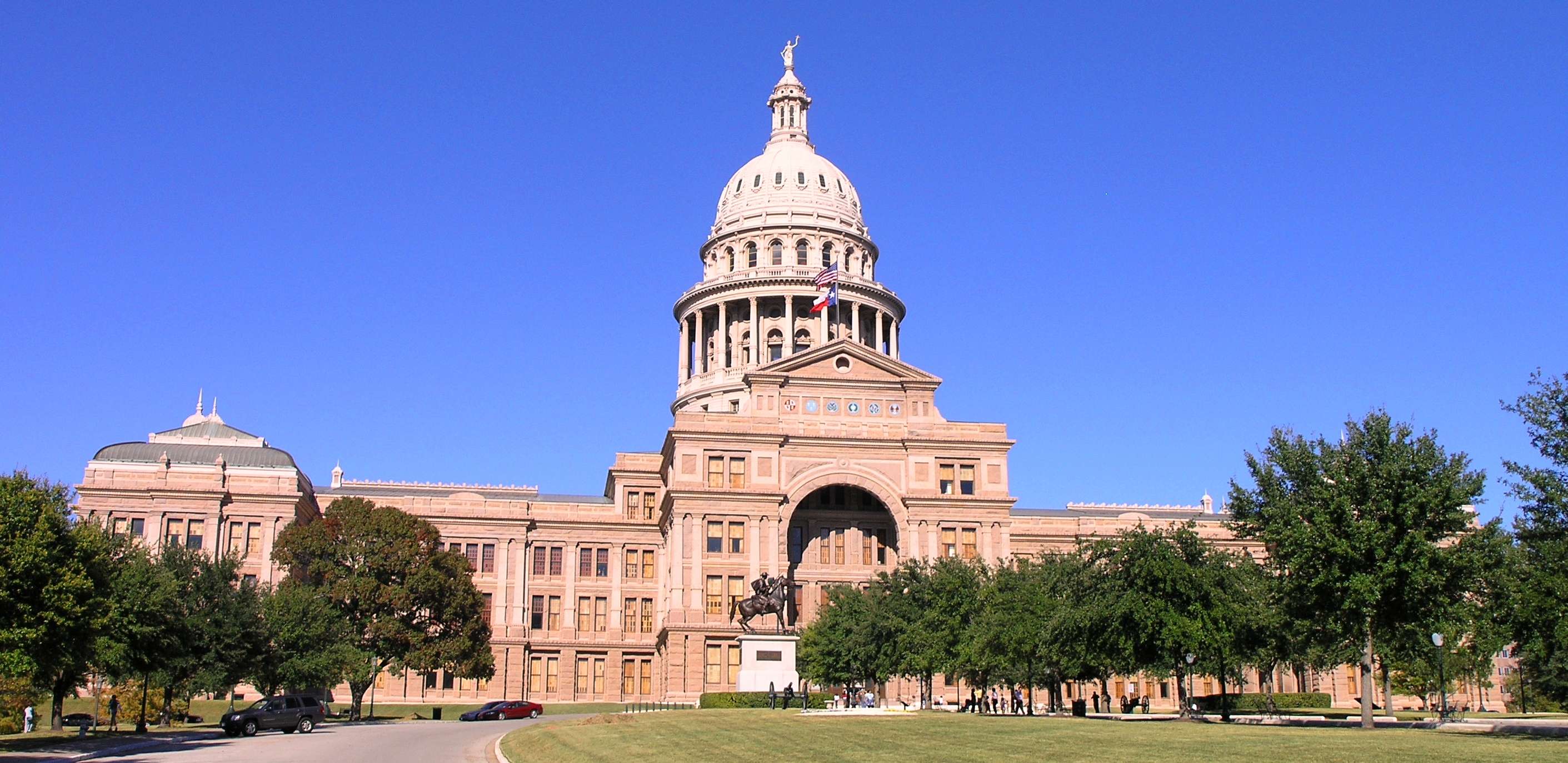
Photo: Daniel Mayer
Earlier this month, the most popular two words in the Latin language were heard in Texas politics: Sine Die. Literally, it means "without day", but it refers to the ostensible last day of the Texas legislative session. It was, by most accounts, a brutal 140 days.
[Editor’s Note: Of course, by now we all know that Governor Abbott has called the 85th Legislature back for a special session starting July 18. For a list of items to be covered click here. Also, Gov. Abbott vetoed several items using his line item veto. For our take on it, click here.]
On top of unprecedented levels of opposition and mobilization against several discriminatory bills, (such as the notorious SB 4 (anti-sanctuary cities) and SB 6 ("bathroom bill")), and even a last-minute (almost) fist-fight on the House floor, there were several attempts to roll back rights of Texans to fight polluters, restrict wind energy development, and put coastal bays and estuaries at risk. However, the Sierra Club was able to work with our allies to pass some good legislation on water conservation, incentives to clean up the air, and additions add some money to the budget for drinking water regulation. We were also able to prevent and even stop some really egregious efforts by our enemies to roll back environmental protection.
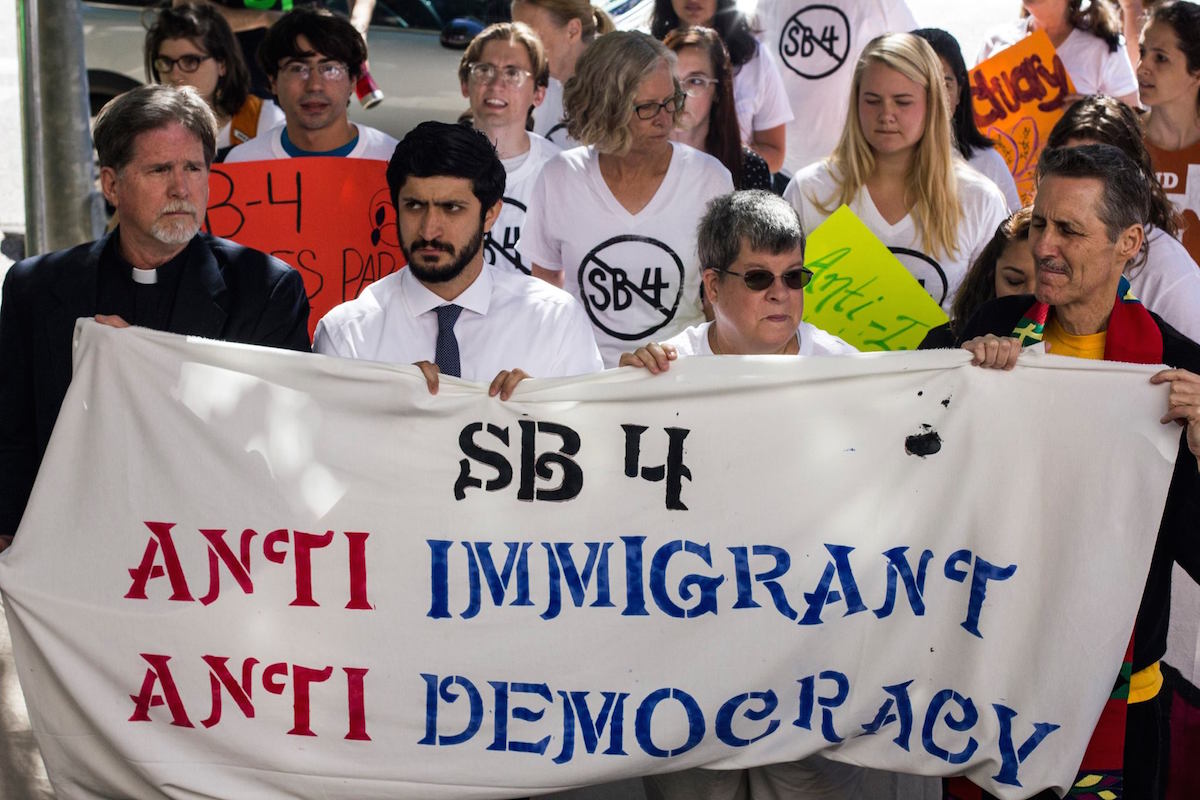
Photo: Marco Galaviz Luna
WHAT PASSED
Water
First, some good news. Two bills on water conservation efforts made it across the finish line. Supported by Sierra Club, and spearheaded by former Chapter Director Dr. Ken Kramer, (who serves on the statewide Water Conservation Advisory Task Force), the bills are modest but important efforts to get our public utilities and cities to do their due diligence in conserving our most precious natural resource.
HB 1648 by Four Price (R-Lubbock) requires each retail public water utility (serving approximately 10,000 people or more) to designate a water conservation coordinator to implement their water conservation plans and make that information accessible to the public and state funders. Similarly, HB 1573, (also by Rep. Price), improves requirements for utilities to conduct water loss audits. Both will help further promote water conservation in the state of Texas. Multiple organizations have already sent letters to the Governor urging him to sign these important bills into law.
Also on the waterfront, funds for basic water conservation programs at the Texas Water Development Board were retained in the state appropriations bill, as were funds for the continuation of studies to help maintain instream river flows and freshwater inflows to bays and estuaries.
For more in depth coverage of water legislation, click here.
Tires
The regulation of used and scrap tires also got a boost thanks to the efforts of Sen. Jose Rodriguez (D-El Paso) and Rep. Armando Walle (D-Houston), who successfully shepherded through SB 570, which improves regulations and enforcement on tire disposal to prevent them from ending up in unauthorized dumps, ditches, and rivers. At one point, the bill was officially killed in the House on a floor vote, but then a last minute push led to a “reconsideration” of the vote, and the votes in support were overwhelming. Texans and their legislators don’t want tires strewn about! A diverse group of stakeholders, including the Sierra Club, has already submitted a letter to Governor Abbott urging him to sign the bill.
Energy efficiency and water quality
A modest state energy efficiency bill, HB 1571 by Sen. Bryan Hughes (R-Mineola) and Rep. Chris Paddie (R-Marshall), also passed. The bill improves state energy efficiency performance contracts to improve the efficiency of state, school, and municipal buildings and fleet management. SB 1105, by Sen Juan “Chuy” Hinojosa (D-McAllen) and Rep. Dade Phelan (R-Port Neches), was probably not on anyone’s radar, but is of great importance to the Sierra Club. This bill allows the nearly $18 million collected as part of the Oil Recycling Fee (the penny on every quart of oil you change) to be used by the Texas Commission on Environmental Quality to regulate and enforce drinking water and water quality regulations, instead of just sitting over at the Comptroller’s office helping to certify the budget.
The TERP bill saga
One of Sierra Club’s priorities for the session was approved in a manner more fitting of a Jason Bourne flick than a deliberative legislative process. Originally introduced as SB 26 by Sen. Craig Estes (R-Wichita Falls) and known as the TERP (Texas Emissions Reduction Plan) bill, the legislation continues the highly successful incentive programs to help clean up the transportation sector in Texas and reduce ozone (smog pollution) in our cities.
The bill passed the Senate, and the Sierra Club worked with House sponsor Rep. Brooks Landgraf (R-Odessa) and three other committee members (Reps. Ron Reynolds (D-Houston), Tony Dale (R-Round Rock), and Rep. Joe Pickett (D-El Paso), to turn the House version of SB 26 into have an even better bill. But the bill officially died on the House floor on May 23 when the clock struck midnight before the House could take up the bill.
Except it wasn’t dead.
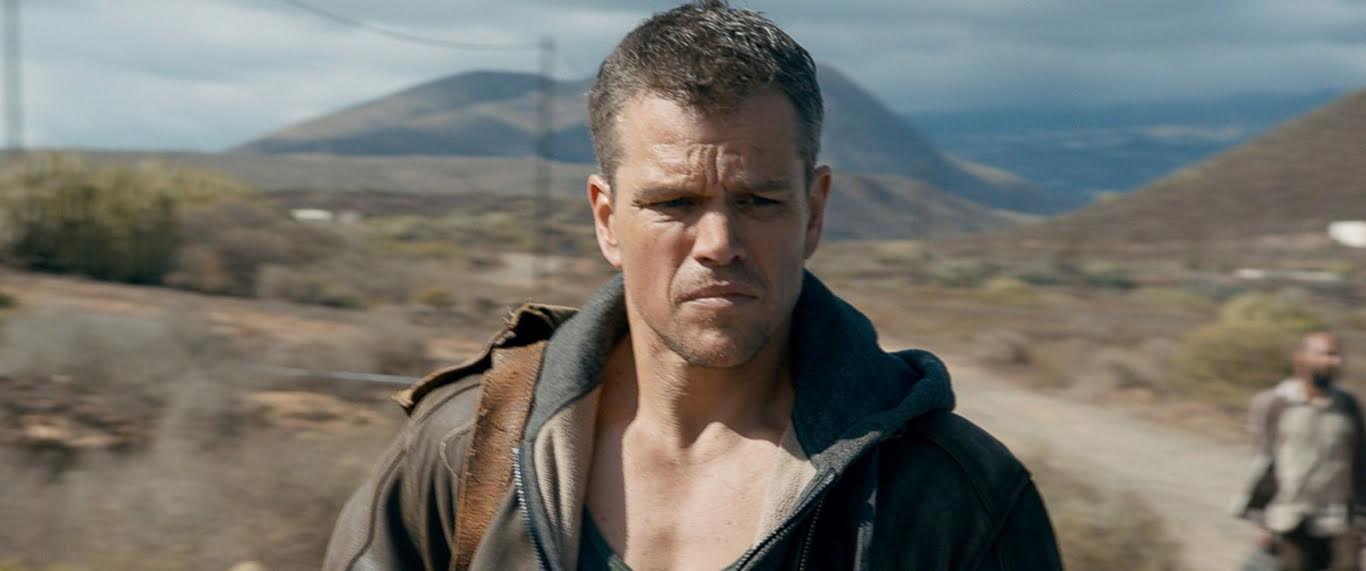
Photo: ABC News
Over the next four days, language similar to SB 26 was added to two other House bills, which became political pawns in the fight between the House and Senate over separate issues. Finally, a third bill, SB 1731, became the vehicle, and after some threatened Points of Order (legal maneuvers to kill bills), cooler heads prevailed, and the TERP programs were extended. Continuing highly successful diesel emission reduction programs, government fleet vehicle programs, a new expanded seaport and rail yard program, and a light-duty vehicle incentive that will help bring down the cost of electric vehicles, were all made part of the larger TERP program.
Unfortunately, while the Legislature expanded and extended the TERP programs legislatively, the budget (passed just hours before) did not include extra money for the programs. Sierra Club will work on a technical adjustment to the budget in the interim to try and “free up” some of the money sitting in the TERP account to help get cleaner vehicles and transportation infrastructure, and then work in future sessions to extend the fees that support the programs.
Sierra Club sent a letter to the Governor signed by multiple organizations asking the Governor to sign SB 1731 into law, and direct the Legislative Budget Board to make a technical adjustment to the budget. On June 12, Gov. Abbott signed SB 1371 into law.
Budging the budget
In general, the budget was not kind, as the House and Senate only agreed to add approximately $1 billion from the so-called Rainy Day Fund to fund important programs. Lawmakers apparently felt it would be imprudent to touch the other $10 billion sitting in that fund (for more on what the Rainy Day Fund could do, check out forabettertexas.org). Natural resource agencies in general saw significant cuts to their budgets, including the aforementioned TERP programs, which were ultimately given $80 million less than the previous two-year budget, and Parks and Wildlife, which saw less in local park grants, state park operations, and maintenance than in previous sessions. (The Sierra Club had issued an action alert early in the session urging legislators to fund the new Palo Pinto Mountains State Park and generated more than 500 emails to legislators.)
Still, some agencies made out well. The Railroad Commission of Texas, (the captured regulator of the oil and gas industry in Texas), got a big boost to hire more inspectors, pay employees better salaries, and even develop an enforcement database (see section below), which was a key demand of the Sierra Club. The Texas Commission on Environmental Quality saw a decline in their budget, though they did receive more money for drinking water and water quality regulation, in large part because of the passage of SB 1105 (see above).
Railroad Commission survives
Speaking of the Railroad Commission, the agency that shall not be known by a name that makes any sense, received the Legislature’s blessing to continue existing for another 12 years through the passage of HB 1818, aka, the “sunset” bill. Unfortunately, while the bill does contain some good provisions, key demands of the Sierra Club were not met. Separate legislation to rename the agency, increase enforcement, review rules on spills or fugitive emissions, put enforcement data online, and limit political contributions to the Commissioners from the industry they regulate, all went nowhere. While an enforcement database was part of legislation that passed, there was no requirement that it be made open and searchable to the public. It was as if the oil and gas industry and their powerful lobby team didn’t want these commonsense reforms to pass either as part of the sunset bill or on their own (can you pick up on the sarcasm?).
Kelcy Warren… Parks & Wildlife Commissioner
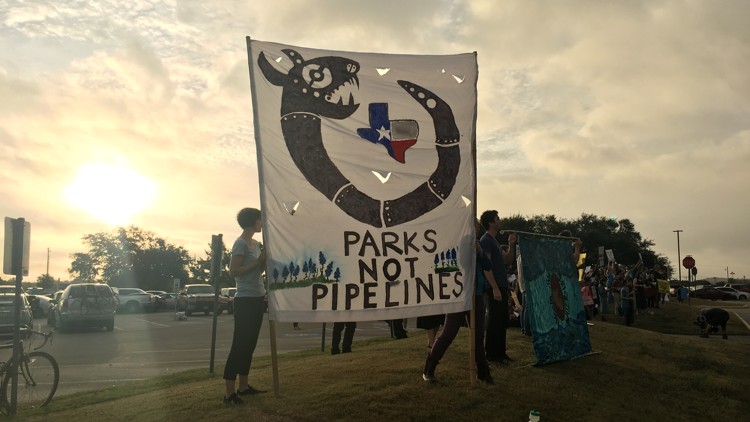
Photo: Austin American-Statesman
Similarly, the Texas Senate, in its infinite wisdom (I’m being sarcastic again), chose to offer its benediction to Kelcy Warren, the CEO of Energy Transfer Partners, (the behemoth of the pipeline industry), as a Texas Parks and Wildlife Commissioner. More than 5,300 emails and phone calls from concerned Texans across the state could not convince more than nine Senators (all Democrats) to vote against a pipeline billionaire to regulate our parks and wildlife. It was particularly disappointing to see Sen. Hinojosa and Sen. Eddie Lucio (D-Brownsville) vote for Warren’s nomination.
Wind Energy Takes a Hit Below the Belt
SB 277 by Sen. Donna Campbell (R-New Braunfels) which eliminates the potential for property tax breaks for wind facilities located within 25 miles of a military base, passed the Senate all too easily, and then the House more narrowly (76 to 65). There were some last minute negotiations in the House, resulting in a mitigating amendment added on third reading that ensures that any wind project already in the process of being approved is not affected by the bill. Only wind projects that occur after September 2017 would be subject. The House also added a separate “third reading” amendment, which would have allowed wind projects to get the tax break if they reach a memorandum of understanding with the Department of Defense that assuages the concerns of the military facility, but it was ultimately rejected in conference committee. The “limit wind development around military bases” bill was passed on a 97-47 vote. It is too early to tell what actual impact the bill will have on future wind development in these areas.
Ironically, Fort Hood held a press conference days after the session to announce it was adding 50 MW of wind and 15 MW of solar to bring the base to 40% renewable energy, even as military bases called their local representatives to vote for a bill that limits nearby renewable wind projects.
More Restrictions
SB 1045, which we opposed, passed. This bill allows some air permits to only have one notice to the public rather than the two currently required under state law. An attempt by the Sierra Club to mitigate the bill’s impact failed as two amendments by Reps. Donna Howard (D-Austin) and Geannie Morrison (R-Victoria) were narrowly defeated.
We were also unable to prevent the House and Senate from widening the ability of corporations to file criminal charges against anyone flying a drone and taking pictures over so-called “critical infrastructure.” Under HB 1643, by Rep. Drew Springer (R-Muenster), this law now includes Confined Animal Feeding Operations (CAFOs) and virtually all operations related to oil and gas. Apparently, they don’t want anyone seeing their leaking fugitive emissions.
Both houses passed the anti-immigrant anti-sanctuary city bill SB 4, which essentially turns our local police officers into immigration officers. This discriminatory legislation led to massive protests in the gallery of the House right before Sine Die. That day has now become infamous, due in part to Rep. Matt Rinaldi (R-Irving) allegedly telling his house colleagues that he had called Immigration and Customs Enforcement (ICE) to come and arrest some of the protestors. After that, as you would imagine, things got heated on the House floor. Rep. Pancho Nevarez (D-Eagle Pass) suggested to Rinaldi that they “take it outside.” Rinaldi, in turn, allegedly announced he had a gun and would use it in self defense to shoot Nevarez in the head.
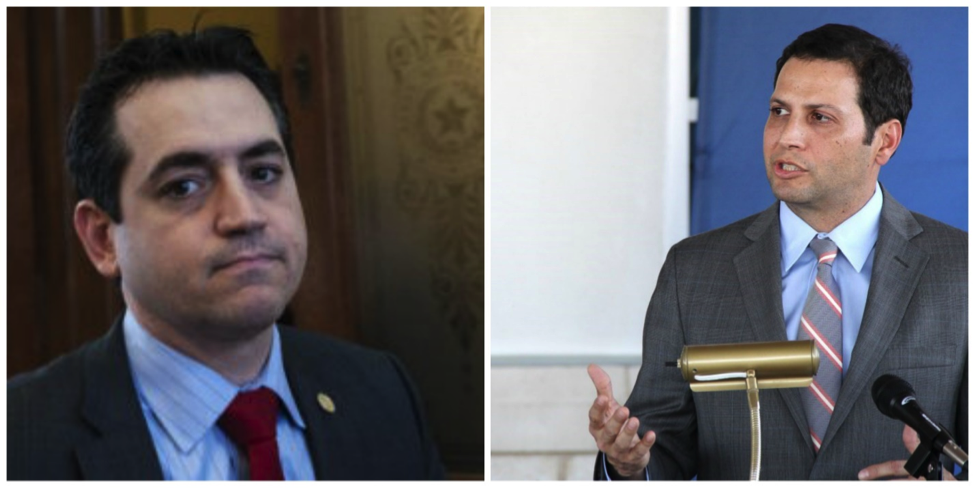
Photos: Texas Observer, Eagle Pass Business Journal
WHAT DIDN’T PASS
It’s a LI-RAP
Another clean air program, LIRAP (Low Income Vehicle Repair and Replacement Program), did not get badly needed reforms because the Senate failed to pass HB 2321 by Rep. Chris Turner (D-Arlington) and Sen. Kirk Watson (D-Austin). The bill would have given more flexibility to counties that run the programs in order to increase incentives to help drivers fix or purchase new, cleaner vehicles. It also would have encouraged more local initiatives and enforcement of clean air standards. This was a major effort to reform the program and make it more accessible for Texas drivers. Despite our best efforts, it did not succeed. To add insult to injury, Gov. Abbott vetoed funding for the program on June 12 (see here).
Safeguarding water
In both the Senate and the House, the Sierra Club and allies were able to stymie virtually all efforts to curtail effective protests of environmentally negative and costly surface water projects. Chris Mullins, a legislative and policy consultant to the Lone Star Chapter, was the lead lobbyist successfully battling legislation that would have prevented many landowners, canoeists and kayakers, hunters and anglers, and other river protectors, from participating in contested cases over surface water rights and from raising critical issues in those contested cases. The Sierra Club also rallied the troops in the last few days of the session to thwart a proposed and poorly structured new system for handing some surface water rights that could have curtailed needed instream flows and freshwater inflows.
Fortunately, Sierra Club helped stop SB 636 by Sen. Don Huffines (R-Dallas), which would have required any local amendment to building codes -- be it for plumbing, energy use, construction, or any other standard building code -- to go through a cost-benefit analysis. While the bill passed the Senate, and was heard in the House, it failed to get out of the committee on a tie vote. The Sierra Club worked hard with our allies to prevent the bill from getting out of committee.
The Session of Discrimination and Rights Restrictions
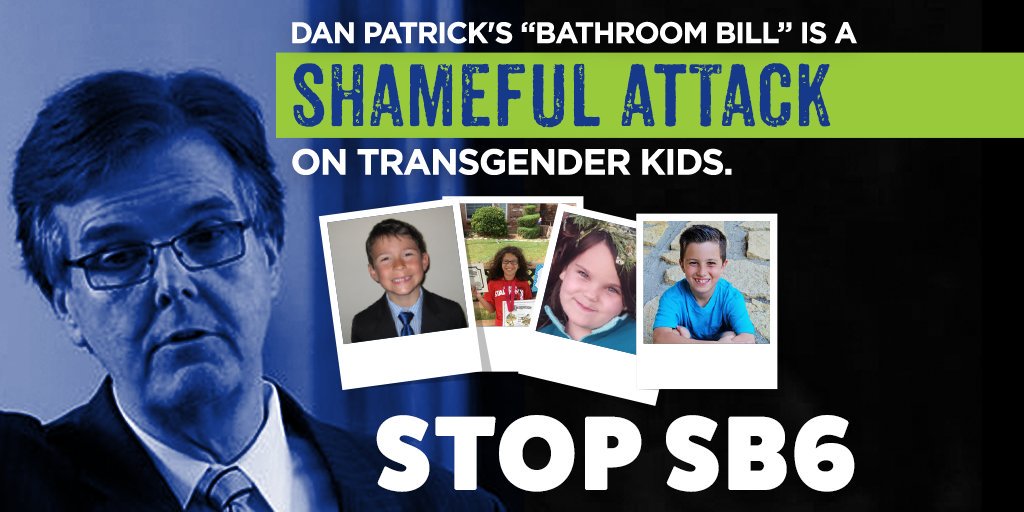
Image: Equality Texas
Discrimination and restricting rights was a common theme running through several issue areas this session.
Perhaps the biggest assault on rights of Texans that was ultimately (for now) unsuccessful, was the so-called “bathroom bill,” SB 6, by Sen. Lois Kolkhorst (R-Brenham). While it did not pass, the House approved a more limited version that discriminates against students, but the bill died.
An overly broad anti-regulation and, anti-city amendment that was added to a seed preemption bill, SB 1172, (preventing cities from regulating seeds), was also stripped when we teamed up with allies like the Texas Municipal League and the AFL-CIO to remove a provision that would have allowed nearly anyone to sue cities and local subdivisions for enforcing rules more strictly than the state.
Through SB 2, the Senate tried to make it difficult for cities to raise property taxes by forcing virtually any increase to go to the voters, a move the House resisted.
Of course, last week Governor Abbott bowed down to Lieutenant Governor Dan Patrick and called everyone back to pass a bathroom bill, property tax reform bill, and several other items.
Regardless of the outcome of the special session, it is clear that people are fed up with the leadership in the Capitol. The Sierra Club will be publishing a Legislative Scorecard in the coming weeks to hold these leaders responsible for their votes. Please stay tuned to our blog, social media, and check your email if you’re signed up to receive updates!